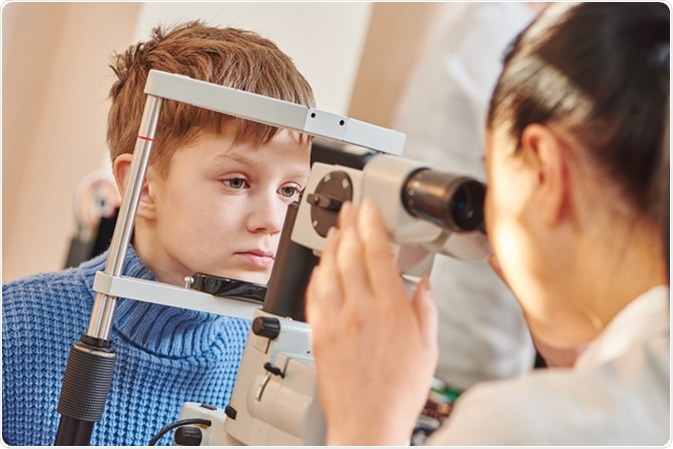Is Refractive Surgical Treatment Right for You? Aspects to Think About for Better Eyecare
In the world of eye care, the choice to undertake refractive surgical treatment is a weighty one that requires thoughtful consideration. From the details of one's ocular health to the ins and outs of individual expectations and everyday practices, each facet holds relevance in the wider landscape of refractive surgery candidateship.
Eye Wellness Examination
When taking into consideration refractive surgical procedure, a comprehensive eye health evaluation is important to examine the suitability of the procedure for every individual. eye doctors in andalusia. This evaluation entails a series of tests and examinations carried out by an eye care expert to determine the general health and wellness of the eyes, the visibility of any type of hidden problems, and the stability of the refractive mistake
During the analysis, different factors are taken right into account, such as the client's medical history, current eye prescription, corneal thickness, student size, and tear movie high quality. These assessments aid to determine any contraindications to refractive surgical procedure, such as corneal irregularities, cataracts, or without treatment eye infections. Additionally, the examination aids to handle person expectations regarding the prospective outcomes of the surgical treatment based upon their distinct eye features.
Eventually, the eye wellness assessment is crucial in ensuring the safety and security and effectiveness of refractive surgical procedure, as it offers useful understandings into the person's eye health and wellness status and assists determine the most appropriate therapy choices for achieving ideal visual end results. (eye center andalusia)
Lifestyle Assessment
A comprehensive way of living evaluation is indispensable in figuring out the suitability of refractive surgery for an individual's aesthetic adjustment demands. Lifestyle aspects such as line of work, leisure activities, and everyday activities play an important role in the decision-making process regarding refractive surgical treatment. For example, people with professions that entail a high degree of physical task or exposure to ecological aspects might have various visual needs contrasted to those with sedentary workdesk tasks. Recognizing exactly how a person's lifestyle might affect their vision post-surgery is crucial for taking care of expectations and guaranteeing optimal outcomes.
Moreover, lifestyle practices such as sporting activities engagement, exterior activities, or also skincare regimens can affect the recovery process and general success of refractive surgical procedure. By conducting a thorough way of living assessment, eye treatment specialists can tailor their recommendations and therapy strategies to satisfy the special requirements of each client, ultimately leading to improved aesthetic results and contentment.
Assumption Positioning

Establishing sensible expectations involves comprehensive pre-operative discussions in between the person and the ophthalmologist. The cosmetic surgeon ought to transparently communicate the prospective risks, advantages, and constraints of the treatment (eye doctors in andalusia). Clients need to understand that while several people achieve 20/20 vision or better following refractive surgical treatment, some may still call for glasses for sure tasks like reading or driving at night. Taking care of these assumptions aids stop dissatisfaction and frustration post-surgery, resulting in a much more positive total experience for the person.
Risk Evaluation

Aspects that might enhance the risk of issues include age, specific clinical problems like autoimmune diseases, unpredictable vision prescription, thin corneas, and impractical client assumptions. Additionally, picking a knowledgeable and knowledgeable surgeon, adhering to pre and post-operative care instructions diligently, and divulging any pertinent case history can help alleviate dangers.
To minimize the probability of difficulties, ophthalmologists perform detailed pre-operative assessments to identify any kind of contraindications to surgery. They additionally discuss the potential dangers and benefits with people during the examination process. By taking part in open communication and shared decision-making, both the client and the eye doctor can collaborate to determine if refractive surgical treatment is the appropriate choice based upon specific risk profiles and preferred end results.
Assessment Value
Thinking about the critical function of educated decision-making in evaluating threats and potential complications in refractive surgery, the consultation process holds considerable significance in guiding people in the direction of optimum outcomes. During the assessment, the ophthalmologist examines the person's eye wellness, refractive mistakes, and total suitability for surgical procedure. This initial analysis is critical in determining the most suitable procedure for each and every individual, taking into consideration variables such as corneal thickness, pupil size, and existing eye conditions.
Furthermore, the consultation functions as an opportunity for people to discuss their assumptions, worries, and any inquiries they might have relating to the surgical procedure. Clear interaction in between the client and the surgeon is vital to ensure sensible assumptions and a comprehensive understanding of the potential risks and advantages entailed.
Furthermore, the consultation permits the surgeon to clarify the different medical alternatives readily available, their particular outcomes, and the post-operative treatment needed. This comprehensive conversation encourages patients to make knowledgeable choices about their eye care, bring about better contentment and outcomes post-surgery.
Conclusion
In verdict, individuals thinking about refractive surgical procedure ought to undertake a comprehensive eye health and wellness analysis, evaluate their way of life behaviors, align their assumptions with prospective results, analyze the affiliated dangers, and prioritize consultations with eye treatment experts. These factors play a crucial role in figuring out the viability of refractive surgery for each and every individual, ensuring optimum outcomes and satisfaction with the treatment.
Clients thinking about refractive surgical procedure frequently have high assumptions regarding the results, anticipating ideal vision without the requirement for glasses or call lenses. While refractive surgery can greatly improve vision and decrease dependence on visual help, it is vital for individuals to understand that results might differ based on private factors such as the level of refractive mistake, corneal density, and general eye health and wellness.
By engaging in open communication and shared decision-making, both the person and the eye doctor can work together to figure out if refractive surgical treatment is the ideal selection based on specific risk profiles and preferred results.
Taking into consideration the crucial function of notified decision-making in analyzing risks and prospective complications in refractive surgery, the examination process holds significant relevance in guiding people towards optimum results. During the appointment, the ophthalmologist examines the client's eye health, refractive errors, and overall viability for surgical procedure.